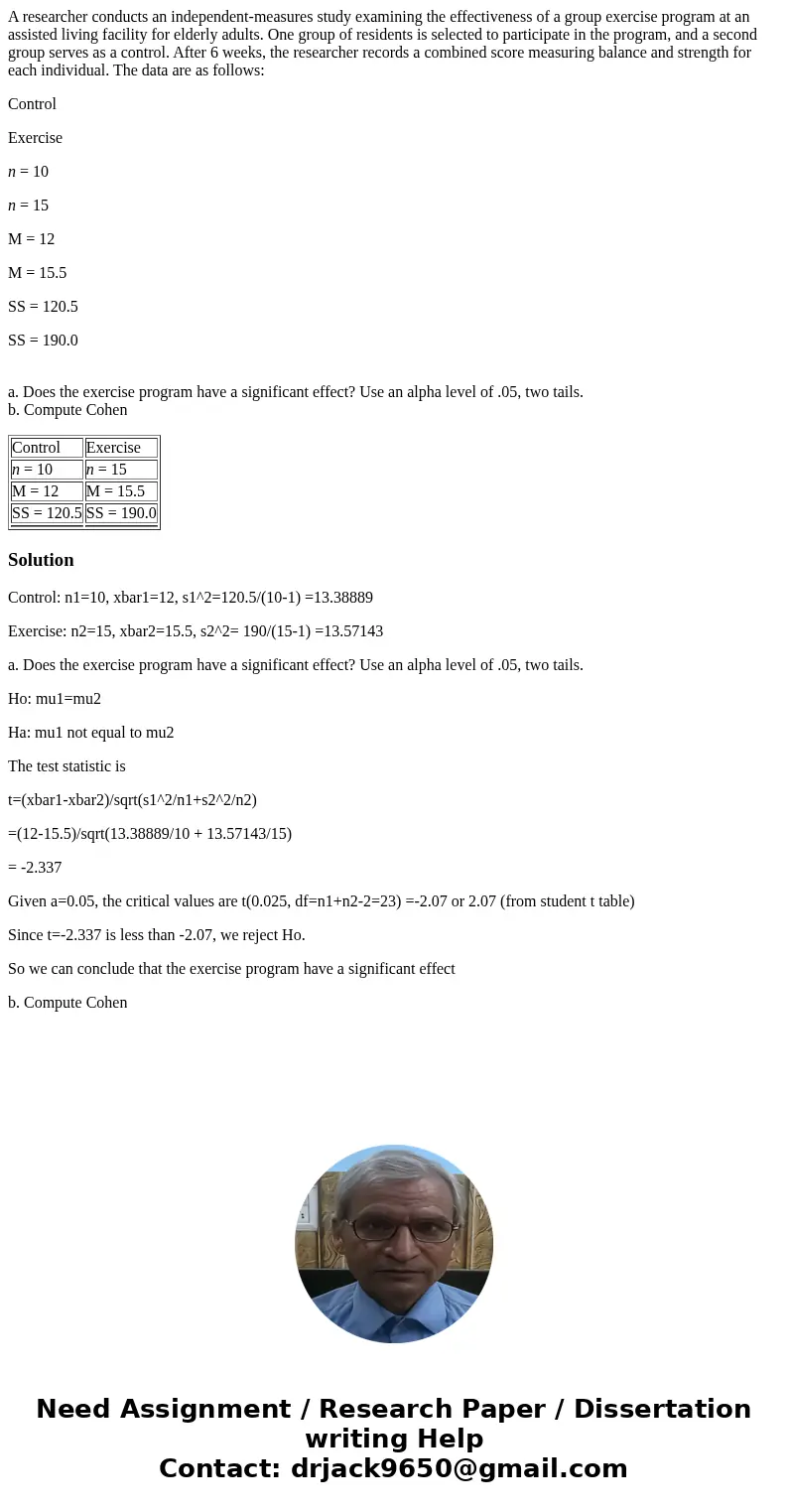A researcher conducts an independentmeasures study examining
A researcher conducts an independent-measures study examining the effectiveness of a group exercise program at an assisted living facility for elderly adults. One group of residents is selected to participate in the program, and a second group serves as a control. After 6 weeks, the researcher records a combined score measuring balance and strength for each individual. The data are as follows:
Control
Exercise
n = 10
n = 15
M = 12
M = 15.5
SS = 120.5
SS = 190.0
a. Does the exercise program have a significant effect? Use an alpha level of .05, two tails.
b. Compute Cohen
| Control | Exercise |
| n = 10 | n = 15 |
| M = 12 | M = 15.5 |
| SS = 120.5 | SS = 190.0 |
Solution
Control: n1=10, xbar1=12, s1^2=120.5/(10-1) =13.38889
Exercise: n2=15, xbar2=15.5, s2^2= 190/(15-1) =13.57143
a. Does the exercise program have a significant effect? Use an alpha level of .05, two tails.
Ho: mu1=mu2
Ha: mu1 not equal to mu2
The test statistic is
t=(xbar1-xbar2)/sqrt(s1^2/n1+s2^2/n2)
=(12-15.5)/sqrt(13.38889/10 + 13.57143/15)
= -2.337
Given a=0.05, the critical values are t(0.025, df=n1+n2-2=23) =-2.07 or 2.07 (from student t table)
Since t=-2.337 is less than -2.07, we reject Ho.
So we can conclude that the exercise program have a significant effect
b. Compute Cohen

 Homework Sourse
Homework Sourse